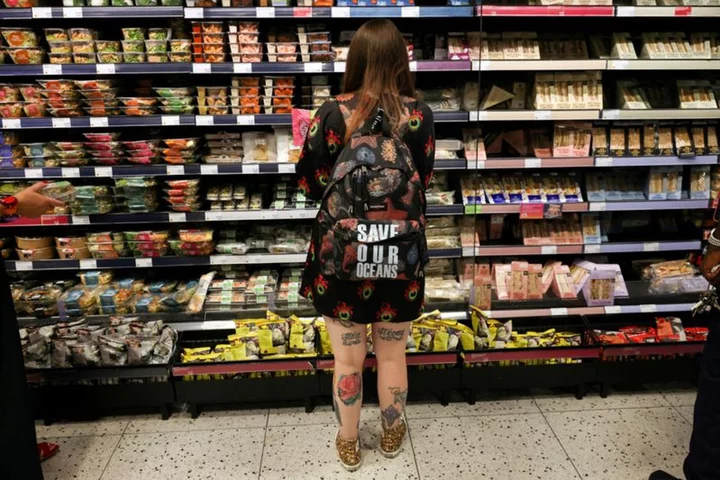By William Schomberg
LONDON British inflation defied forecasts of a fall in May and stayed far above price growth in the United States and elsewhere in Europe, pressuring the Bank of England to keep on raising interest rates despite the growing hit to mortgage-holders.
Britain has struggled more than other countries with the surging cost of food, a shortage of workers to fill jobs and its heavy reliance on natural gas to generate power and domestic heating, all of which adds to inflation pressure.
Below is an explanation of Britain's high inflation problem.
HOW DOES UK INFLATION COMPARE TO OTHER COUNTRIES?
Britain's consumer price index rose by 8.7% in annual terms in May, unchanged from April and defying forecasts among analysts polled by Reuters for a slowdown to 8.4%. Although down from 11.1% last October, it left the country with the highest inflation rate among the Group of Seven advanced economies.
By comparison, inflation stood at 4.0% in the United States and 6.3% in Germany.
WHAT ABOUT CORE INFLATION?
Britain's measure of underlying inflation that excludes volatile items, such as energy and food, took investors by surprise by accelerating for a second month in a row in May, hitting 7.1%, up from 6.8% in April.
Higher core inflation is seen as a sign that price growth is more likely to remain persistently high.
Another gauge of underlying price pressure that is watched closely by the BoE - services price inflation - also rose. Both increases were the strongest in more than 30 years.
WHY IS FOOD INFLATION SO HIGH IN THE UK?
Britain has had western Europe's highest rate of inflation for food, with prices up more than 18% over the past year, down only slightly from a recent peak of more than 19%, the highest since 1977.
Freak weather has affected crops around the world, pushing up prices for many countries. But Britain is the world's third largest net importer of food and drink, according to the Food and Agriculture Organization of the United Nations - behind only China and Japan - leaving it particularly exposed.
Industry data published on Tuesday showed British grocery inflation eased slightly for the third month in a row in June.
BoE Governor Andrew Bailey said last month that British food producers may have locked in higher costs than the BoE had anticipated, explaining some of its underestimate of inflation.
ENERGY PRICES
Britain is highly reliant on imported gas to generate electricity, exposing it to the full force of the surge in gas prices last year after Russia's invasion of Ukraine.
The way Britain regulates energy prices for domestic and business users - it announces changes to maximum tariffs on a quarterly basis - means that international price rises are slower to push up inflation than in many other countries but falls are also slower to feed through into bills for users.
IS BREXIT PART OF THE PROBLEM?
Britain voted in 2016 to exit the European Union and it left the EU's single market at the start of 2021. Although London and Brussels have an agreement allowing largely tariff-free trade in goods, there are barriers to exports and imports in the form of paperwork which have caused delays and higher costs.
The end of free movement of workers from EU countries has contributed to a shortage of staff faced by many employers that is more acute in Britain than in many other economies and which has pushed up wages and ultimately prices for consumers.
WHAT DO PEOPLE THINK WILL HAPPEN WITH INFLATION?
The British public's expectations for rising prices have cooled somewhat in recent months, perhaps the only bright spot for the BoE as it monitors the risk of an inflation psychology becoming engrained in consumer behaviour.
But those expectations remain elevated, contributing to wage growth at levels that makes the BoE uncomfortable about future inflation pressures.
WHAT IS THE BANK OF ENGLAND LIKELY TO DO?
Investors and analysts responded immediately to Wednesday's data by pricing in more interest rate increases than they had previously been expecting.
Rate futures showed investors saw a roughly 40% chance that the BoE will raise rates by half a percentage point to 5.0% on Thursday and a 60% chance of rates reaching 6% by December.
(Writing by William Schomberg; Editing by Catherine Evans)









